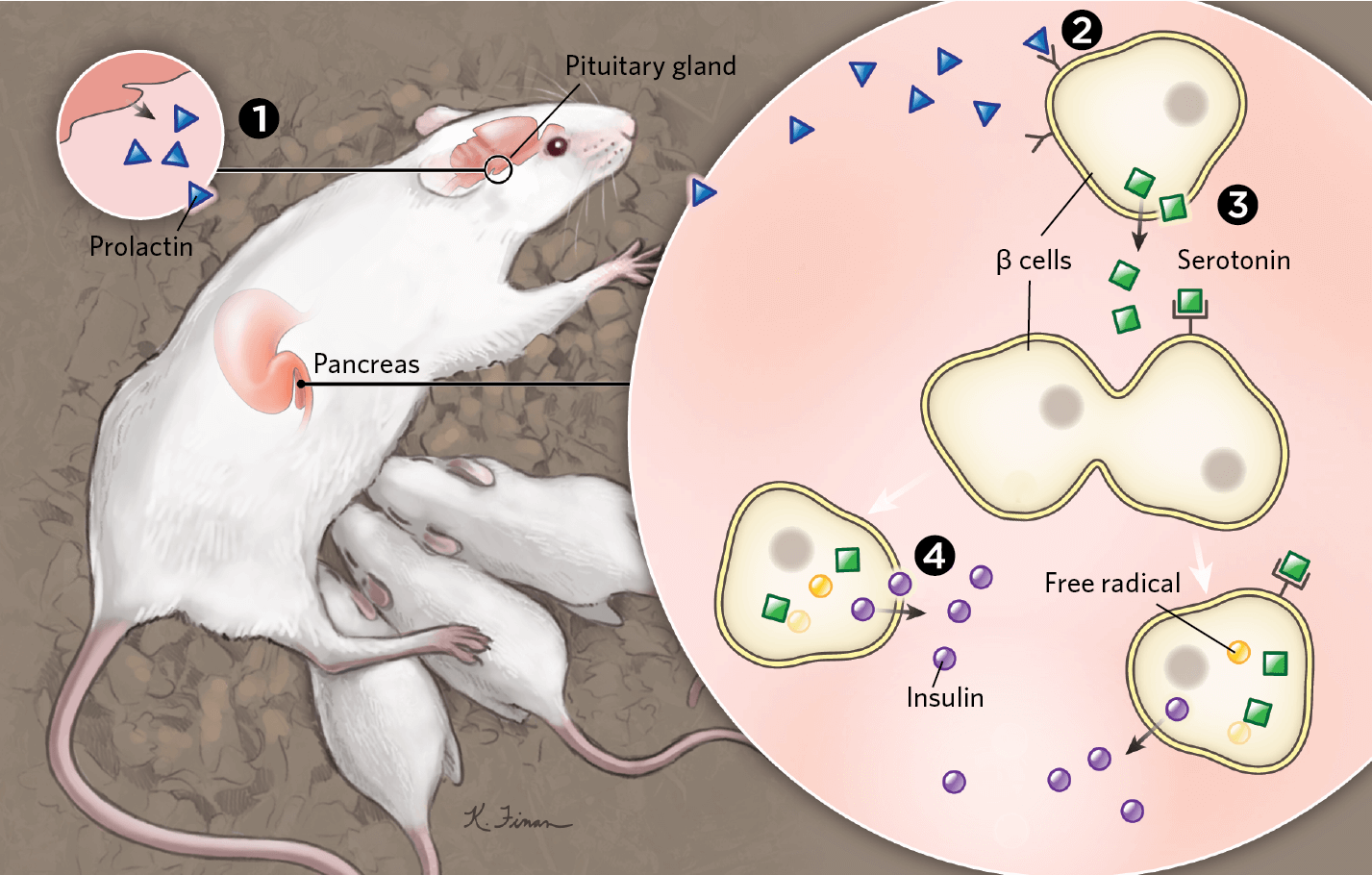When a woman becomes pregnant, her risk of type 2 diabetes increases for the rest of her life, perhaps because of her growing weight and rising insulin resistance. But if she breastfeeds, epidemiological studies have shown that the uptick in risk shrinks or disappears.
The mechanisms underlying this lactation perk have been unclear, but Michael German, a biologist at the University of California, San Francisco, hypothesized that the pancreas’s beta cells are involved. “For long-term protection over decades, you have to fundamentally change some part of the mechanism that controls blood sugar,” says German. “The best way to do that is by affecting the beta cell, because it makes the insulin.” Insulin helps glucose enter the body’s cells from the blood. But in type 2 diabetes, cells become insulin resistant and thus less able to absorb enough glucose, forcing the pancreas to make more insulin until it can’t keep up and blood sugar rises.
Through a series of knockout experiments in the animals, the team surmised that prolactin, the hormone produced when humans or mice make milk, binds to beta cells and triggers a signaling cascade that results in serotonin production, which then spurs beta cell proliferation and insulin production. In addition, the researchers found that serotonin in lactating mice acts as an antioxidant, helping keep beta cells healthy.




































